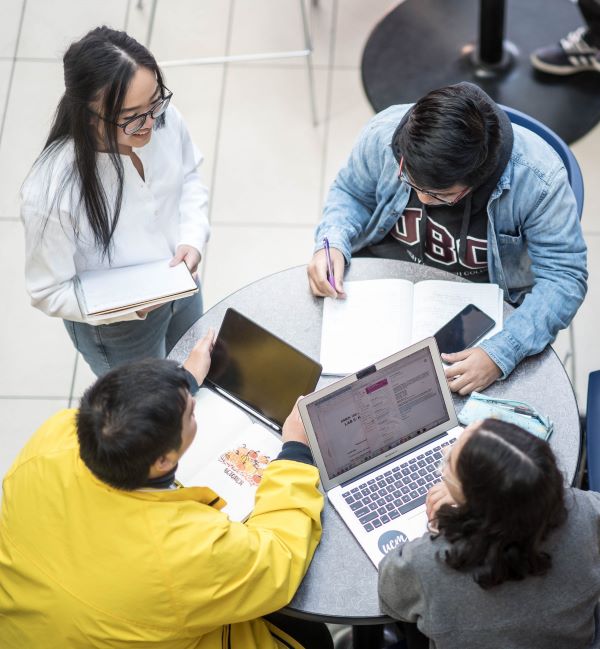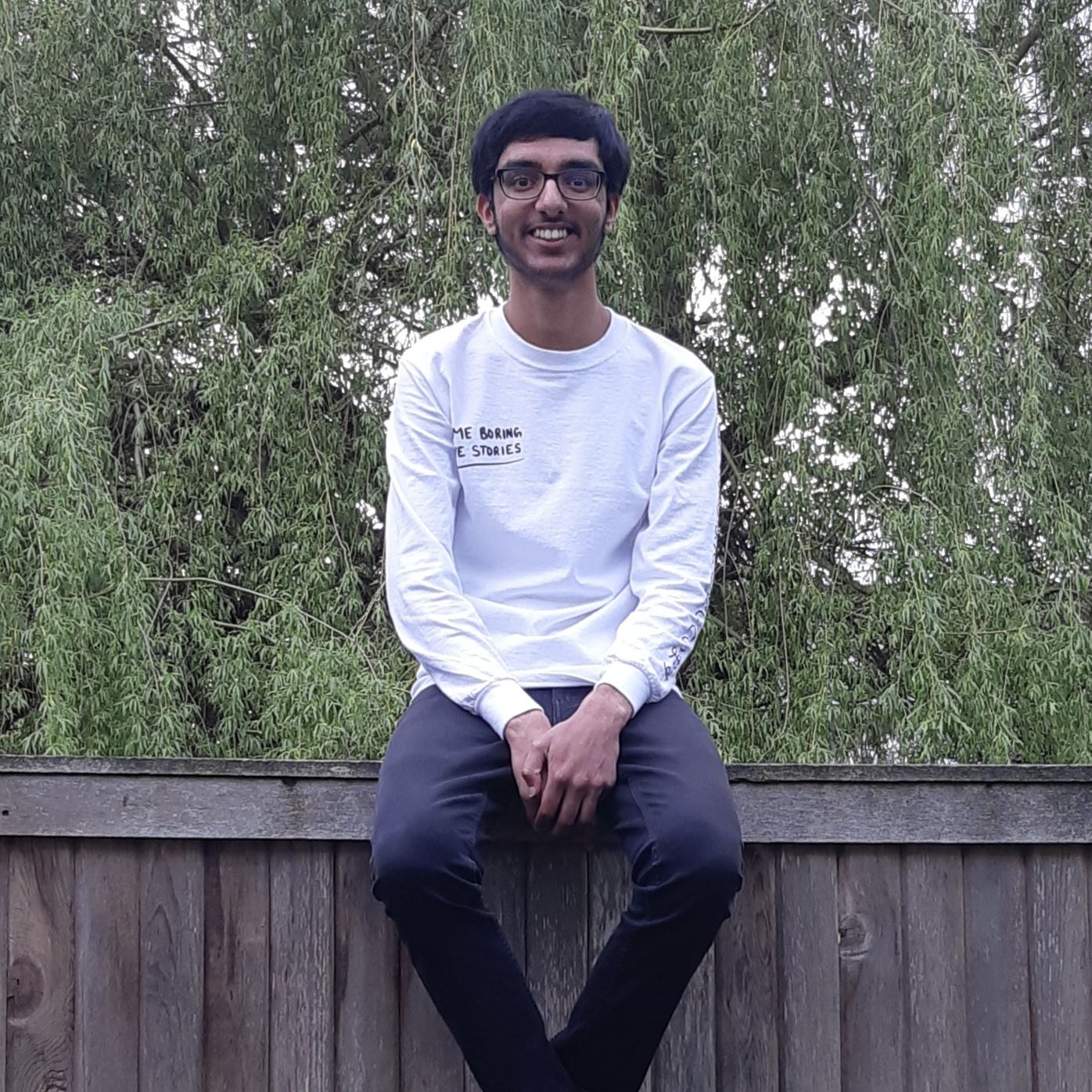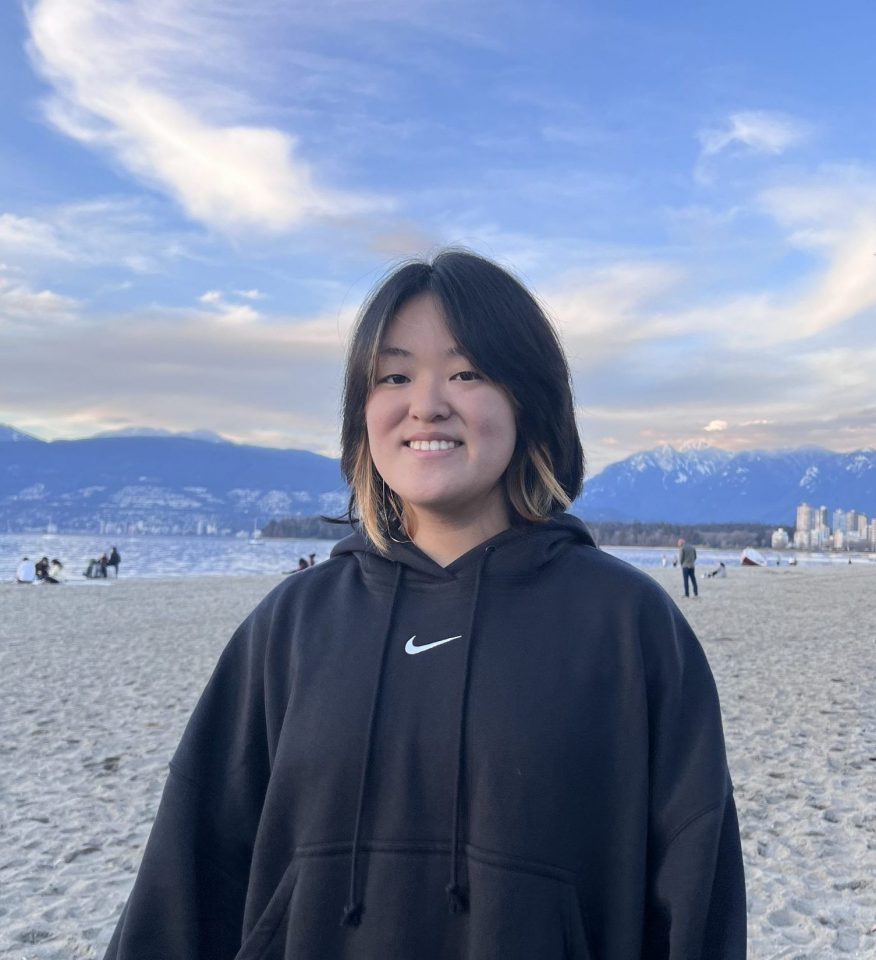Learning Technology Rovers (LTRs)
Faculty Support
What is an LTR?
The Centre for Instructional Support (CIS) participates in the Learning Technology Rover (LTR) Program, which was inaugurated by the Centre for Teaching, Learning and Technology (CTLT) in 2014. In being hired to support our APSC faculty and staff, students working as CIS LTRs gain meaningful co-op work experience, while developing key skills and foundational knowledge of how technologies are applied to teaching and learning.


Ayla Cilliers
April 2024 – Present
About Ayla
Ayla is a second year BA+MM student majoring in Sociology and obtaining a Certificate in Climate Studies and Action. She enjoys working with faculty and students to improve their learning experience, and aims to explain learning technologies in an approachable way. She is currently working to develop her skills to expand CIS website with the help of previous LTRs and CIS staff.

Pawan Daliaho
January 2024 – Present
About Pawan
Pawan is a second year Engineering Physics student in the Faculty of Applied Science. He enjoys learning about new technologies and helping others implement them into their workflow. When he first started as an LTR, he delved deep into Excel to automate many manual tasks for APSC 101 and documented the instructions for others to use. He is now collaborating with the team to rebuild the CIS website to match the look and feel of other APSC websites.
Get to Know Our LTRs
In April 2024, we asked former student technology rovers Pawan Daliaho (second year Engineering Physics student in the Faculty of Applied Science) and Allison Ko (third year Computer Science student in the Faculty of Science) to share some reflections on their co-op experiences with the Centre for Instructional Support (CIS).
Click here to find out more about their work, accomplishments, and takeaways!

Pawan Daliaho (PD)

Allison Ko (AK)
Q1. Why were you interested in doing your co-op with CIS? / What made you interested in the position?
Pawan Daliaho (PD): I have always enjoyed helping others work with technology and utilize it to make their lives easier. I realized that this position would give me the opportunity to provide support at a professional level and refine my communication skills. Furthermore, I would be able to work with instructional teams within APSC which I had taken courses within the past.
Allison Ko (AK): Since I was young, I was always excited to help my friends and family with technology questions. Technology is always evolving and there is not a standardized layout for every program or platform, but I found it fun to recognize the patterns and similarities across various tools. I was more than thrilled to be able to utilize my passion for technology and problem-solving skills at CIS and support the APSC faculty.
Q2. What types of support did you provide?
PD: Supporting instructional teams included everything from simple Canvas inquiries to custom solutions tailored to specific courses. This term I had the opportunity to revamp the electronics kit sign-out workflow for a course using Excel. Previously, the entire process was done manually (validating almost 1000 entries!), but now the workload has been greatly reduced since most of it is automated.
AK: We provide comprehensive faculty support for various learning technologies such as Canvas and Zoom through email, 1-on-1 remote meetings, or drop-in meetings. I worked closely with several faculty members in building Canvas quizzes, calculating and applying iPeer coefficients to assignment grades, and building Excel spreadsheets to calculate final grades.
Q3. Tell us more about the work you have done.
PD: Besides supporting faculty, I was able to work on revamping our CIS website (the one you are looking at right now!) through WordPress. We worked on compacting and simplifying all the content from our previous website and presenting it nicely on this new website. Our main focus was to standardize the look and feel to match that of all other UBC websites. Through lots of careful planning and hard work with our director, we managed to complete the entire website within one term!
AK: I had the opportunity to work closely with Pawan and our director, Melissa, in redesigning and rebuilding the new CIS website on WordPress with an emphasis on enhancing user experience. Prior to beginning this project, I gained several front-end skills in HTML, CSS, JavaScript, and Bootstrap. With these skills, I developed processes such as adding a header image to a page, adding an “expand all” button to open and close a group of accordions, and adding APSC graphic devices to the background of a page.
Q4. How has working directly with faculty changed your perspective?
PD: Working directly with faculty showed me the level of time and care instructors put into their courses to ensure they run smoothly for students. They are constantly working to learn more about the various technologies available to them to enrich learning within their classes. I also realized the amount of work that goes into upkeeping Canvas courses, which includes not only the instructors but also their TAs and help from our office as well.
AK: It was very insightful seeing the instructor side of Canvas and the different processes they go through such as rolling over courses every term or altering assignments. Additionally, I was exposed to the various ways instructors utilize Canvas Modules, Pages, and Files in their courses; it was interesting to see the different thought processes that go into designing courses.
Q5. What did your time with CIS help you learn about yourself?
PD: I learned that I thrive when given the independence to explore creative solutions to problems, whether that was presenting content within a Canvas course, revamping attendance validation via Excel, or rebuilding our new CIS website from scratch. It also showed me that soft skills are truly applicable in any career and should be focused on regardless of where you choose to work.
AK: During my time with CIS, I learned about how I work in a professional environment and more about my career interests. For example, at CIS, I enjoyed a good balance of working closely with the team as well as working independently. Furthermore, while collaborating on the new CIS website, I gained an interest in the website/software development cycle as well as project management, which I hope to gain more experience in and improve on in the future.
Q6. What will you take away from your experiences in CIS?
PD: My biggest takeaway from CIS would be the written, over video call, and in-person communication I was able to practice within a professional setting. Besides this, I was able to pick up on new Excel functions and conditional formatting techniques which are beneficial for data validation purposes. Lastly, my work with the revamp of our website gave me new HTML skills which I would not have picked up otherwise.
AK: Like Pawan, I had the opportunity to greatly improve my communication skills in a professional environment. While supporting faculty through various mediums, I learned how to quickly adapt and personalize my method of communication. For example, one instructor may be more comfortable following written instructions through email while another instructor may be more comfortable sharing their screen over Zoom and working through the issue together. Additionally, working on the new CIS website was my first experience at a larger-scale and public project, where I learned a lot of technical skills as well as soft skills in collaboration and organization.
Q7. What else would you like people to know?
PD: The level of support and care offered by the tight-knit team here at the CIS office cannot be emphasized enough! Everyone is very welcoming and willing to accommodate you as you need. They work hard to ensure you have the right tools, equipment, and resources to complement your working style. Lastly, the mix of team-based and individual work available to you keeps things interesting, making work a fun challenge instead of a dreadful chore.
AK: CIS is such a great, supportive team. Whenever you are stuck on an issue, you can trust the team to respond quickly. Here, you also have a wonderful opportunity to work on a project related to your interests that can also benefit CIS and the Faculty of Applied Science. Don’t hesitate to ask for project ideas!
Previous LTRs

Pawan Daliaho (January 2024 – April 2024)
Pawan is a second year Engineering Physics student in the Faculty of Applied Science. He enjoys learning about new technologies and helping others implement them into their workflow. When he first started as an LTR, he delved deep into Excel to automate many manual tasks for APSC 101 and documented the instructions for others to use. He is now collaborating with the team to rebuild the CIS website to match the look and feel of other APSC websites.

Allison Ko (September 2023 – April 2024)
Allison is a third year Computer Science Student in the Faculty of Science. She enjoys working with technology, with an interest in software development. During her first term as an LTR, she gained front-end skills in HTML, CSS, and JavaScript, which she has been able to utilize in her second term. She is collaborating with the team in rebuilding and redesigning the CIS website to make it more user-friendly and make the team’s services and resources more accessible.
Michael Ma (May – December 2023)
Michael Ma is an undergraduate electrical engineering student. He enjoys delving into the instructor-side of all the learning technologies that he has used as a student, such as Canvas, iPeer, and Kaltura, but his true passion is helping people find solutions to their learning technology problems.
Nickson Mak (January – August 2023)
UAnn Yao (January – April 2023)
Ry McDowell (September – December 2022)
Alex Baillie (September – December 2022)
Tiffany Chu (May – August 2022)
Chloe Panych (May – August 2022)
Byung-Sun Park (January – April 2022)
Usman Siddiqui (September 2021 – April 2022)
James LaRose (September – December 2021)
Allie Price (September – December 2021)
Will Tanner (May – August 2021)
Philip Bartha (May – August 2021)
Anthony Chow (January – April 2021)
Brandon Chan (January – April 2021)
Ryan Chew (September – December 2020)
Dunstan Wang (September – December 2020)
Bryce Allen (May 2020 – April 2021)